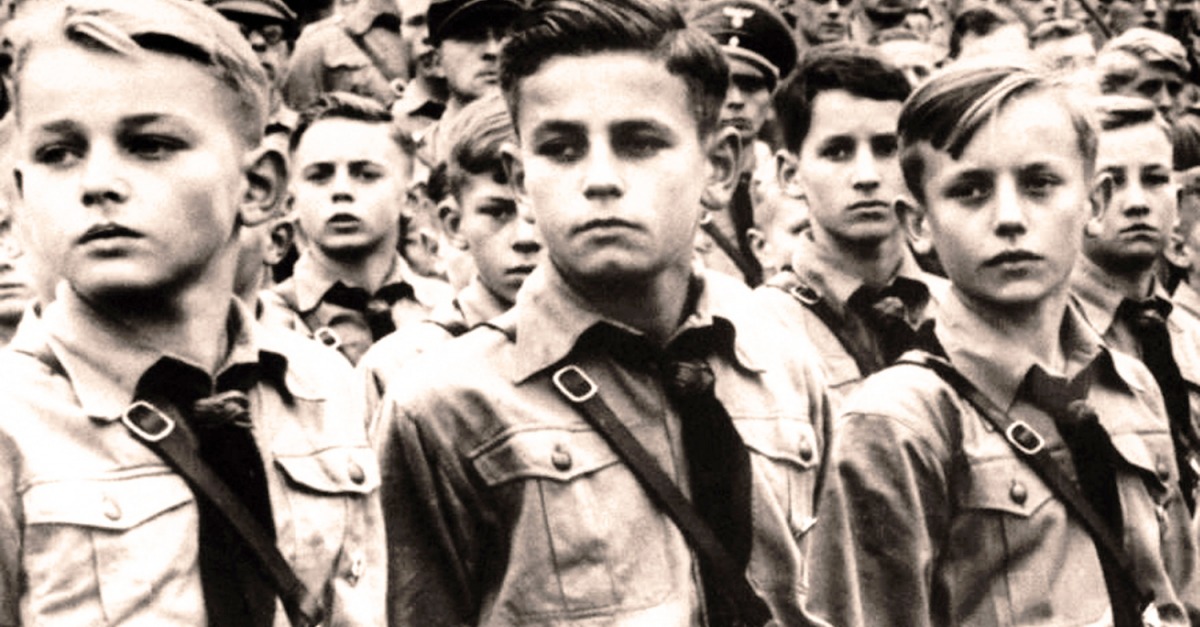Julian Langness’ Fraternity of Combat
by Dexter Van Zile (September 2016)

Julian Langness likes the outdoors, J.R.R. Tolkien and is proud of his Norwegian roots. He worries about the future of Western civilization, Europe especially, and encourages young men who read his website to get control of their finances, spend less time on social media and to stop looking at pornography. He exhorts his fellows to wake up early, get in shape, learn self-defense, adopt an attitude of self-reliance and to become writers and poets.
If Langness had the proper training, he would be the perfect choice to lead a youth group at a local church just about anywhere in middle America. He might even work out as a pastor of a small community church somewhere in rural America where he could preach for a few years before moving on to a larger congregation in the city. He is not a deep thinker and his writings are pretty derivative, but Langness has the look, style and demeanor of a young, ambitious pastor. There would be a megachurch in his future.
Langness, who in 2008 served as a delegate to the Democratic National Convention, from Idaho, has abandoned politics and is preparing himself and others for the day that Europe descends into a race war between its native European population and Muslim immigrants.
Such a war, Langness declares, will allow for the renaissance of White European culture and restore its people to their rightful place on the world stage. “The artificiality of modern life calls out for destruction,” Langness writes in Fistfights. “The present Western world deserves a chance to recast itself into something more natural, more sacred, and more worthy of its great history.”
So, how did a nice young kid from Idaho come to embrace such a malevolent world view?
He gets into a fight with one of these young men at a party. The fight ends indecisively, but the overall impact of the fight and the trip in general is to sensitize Langness to the conflict between native Europeans and Muslim immigrants.
After the trip, he attends college in the United States, but is disgusted by his professors, “middle-aged white men, soft and fleshy” who constantly recount how “America and Europe were racist lands whose histories were nothing more than oppression and patriarchy and violence.” Langness has no use for “[t]hese men who were devoting their lives to teaching about the evils of their ancestors and peoples.” In disgust, Langness drops out of college and returns to Europe where in his conversations with young Europeans, he is exposed to the same self-hate he saw in his college professors. “No immigrant could commit a crime, now matter how heinous, without the Europeans jumping over themselves to take the blame,” he writes.
Soon afterwards, Langness gets into a fistfight with a Muslim immigrant who gets the better of him. Despite his defeat, Langness feels “physically lighter” for having come “face to face with what I had dreaded silently for so long,” the prospect of being beaten up. After the fight he realizes he feels respect for the Muslim with whom he fought. “He had shown courage, and determination, and self-mastery as we fought. I respected the way he had stood his ground. There was no hesitation in him—no self doubt or ambiguity of purpose.”
Langness does some reading and concludes that despite its inhumane treatment of women, which he detests, Islam does a better job of passing on meaning and identity onto the next generation of its adherents than Western civilization does with its people. Westerners encourage their teenage daughters to behave promiscuously, while Muslims “guard against such moral elasticity” and preach about “the importance of marriage and family.” Muslims are “pious, and devout,” and do “not scrape and bow before materialistic consumption.” And Muslims revere their heritage and are willing “die for the benefit of their descendants and their faith” while Westerners think “little of the future,” denigrate their heritage and attack their forefathers.
This is all very appalling. Rather than lament the prospect of civil war and terrible acts of violence in Europe, Langness longs for the day when there is blood on the streets.
___________________________________
Dexter Van Zile is a researcher at the Committee for Accuracy in Middle East Reporting in America (CAMERA). His opinions are his own.
To comment on this article, please click here.
To help New English Review continue to publish interesting and informative articles such as this one, please click here.
If you have enjoyed this article and want to read more by Dexter Van Zile, please click here.